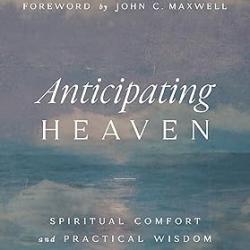That moment was the beginning of a decades-long deconstruction of everything I'd been taught and an attempt to reconstruct Christianity not in my image but in a way that at least makes sense internally. Naturally, I began to reconsider my beliefs about everything—God, the Bible, the atonement, etc.—at first in a rather unsophisticated way but then in a more systematic fashion as I worked in Christian publishing, went to seminary, and so on.
The moment hell really came into focus for me was the fall of 2008. I was working as a screenwriter, but suddenly all of my jobs fell through. It just happened that my personal crisis coincided perfectly with the global financial meltdown. So it was a tough time. As I cast about for other work, my friend Brad Jersak asked if I'd be willing to edit his new book, Her Gates Will Never Be Shut: Hope, Hell and the New Jerusalem. The timing couldn't have been better.
Brad's approach to the subject of hell was simple: If we're going to be biblical about hell, let's really be biblical. In other words, rather than read the text selectively to support what we already believe, let's listen to everything the Bible has to say about post-mortem punishment. That means examining all of the words typically translated as hell (sheol, Gehenna, Tartarus, Hades), all of the images of judgment (the lake of fire, outer darkness, etc.), and various interpretive traditions throughout Christian history.
The key thing I took away from that experience is the realization that the Bible is absolutely polyphonic on this issue. Contrary to popular belief, there is no single theology of hell or the afterlife presented in the text. Instead, some voices cry out for divine wrath and punishment. Others beg for mercy. Some seem to indicate that the wicked will suffer for eternity. Others imply the wicked will be utterly destroyed. And still other voices hold out hope that all people will ultimately be reconciled to God. What are we to make of this? I think many Christians—particularly evangelicals—go to the Bible expecting to find a series of objective statements that will settle the matter decisively. Instead we find a lively conversation where competing viewpoints aren't just maintained, they're encouraged. This conversation has continued throughout the history of the church, so I took this permission to continue the conversation today, making sure not to shut down dissenting voices.
I knew right away I wanted to make a film on this topic, because I suspected most Christians (and non-Christians) were as ignorant as I was before I started on Brad's book. We've all heard the "hell story," and we all assume there is really only one way of looking at it—at least if you want to call yourself an orthodox Christian. I was eager to explore alternate ways of reading the text to see if you really could maintain an alternate view, such as universalism, and still regard yourself as a thoroughly biblical and Christ-centered person. This conversation has been going on in seminaries, in books, and on the internet for decades, but I thought a feature-length documentary would help to bring it into the mainstream.
It wasn't until January 2011 that I finally found myself in a position to think seriously about making the film. I was about to turn 40, and after years of working as a screenwriter-for-hire, I decided it was finally time to strike out on my own. Call it a mid-life crisis. So I literally started doing one thing each day to make the film a reality. That led to two things per day and more until I found myself working on it full time—booking interviews, budgeting, etc.—all without a single dollar behind the project.
About two months into this process, Rob Bell came out with his book Love Wins. Within weeks, hell was literally on the cover of TIME magazine. So if I had any doubts about the timeliness of the topic, they were quickly erased. It was a real gift to me, because it showed me everyone who had a dog in this fight.
Hellbound? opens and closes with scenes from 9/11—why did you choose this event as the framing context for your film?
When we're talking about hell, what we're really talking about is justice. Everyone recognizes that we live in a world full of evil, pain, and suffering, made worse by the fact that we are powerless to undo much of the destruction we cause. We can repair damaged property, but we can't bring people back to life. And even though we can soothe psychological and emotional wounds caused by traumatic events, we can't ever bring people to full healing. So it's only natural to cry out for supernatural intervention. If we can't make things right, maybe God can. And if God is good, he has to make things right. But what does that look like? How is God's justice like our justice? How is it different?





